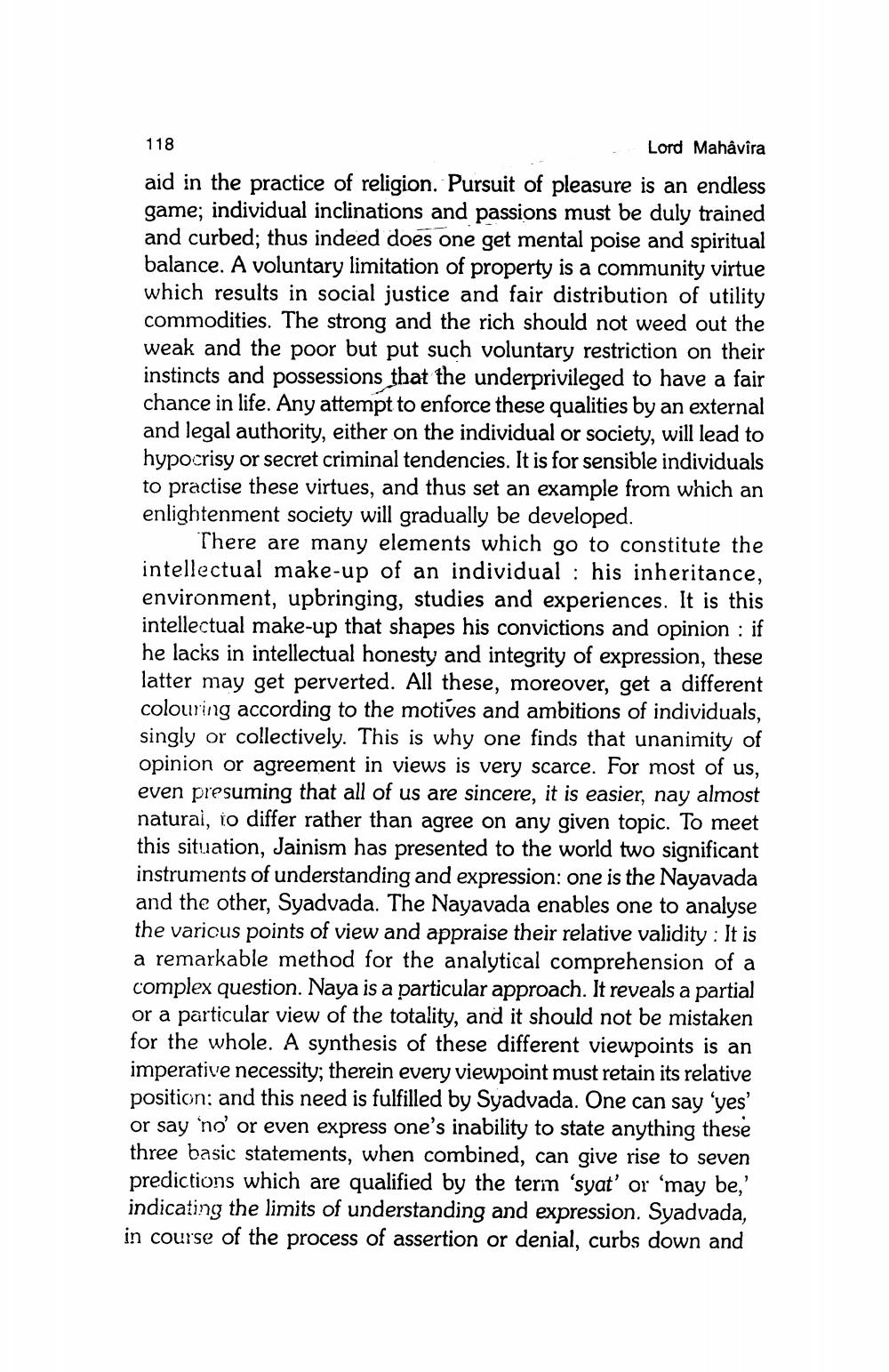________________
118
Lord Mahavira aid in the practice of religion. Pursuit of pleasure is an endless game; individual inclinations and passions must be duly trained and curbed; thus indeed does one get mental poise and spiritual balance. A voluntary limitation of property is a community virtue which results in social justice and fair distribution of utility commodities. The strong and the rich should not weed out the weak and the poor but put such voluntary restriction on their instincts and possessions that the underprivileged to have a fair chance in life. Any attempt to enforce these qualities by an external and legal authority, either on the individual or society, will lead to hypocrisy or secret criminal tendencies. It is for sensible individuals to practise these virtues, and thus set an example from which an enlightenment society will gradually be developed.
There are many elements which go to constitute the intellectual make-up of an individual : his inheritance, environment, upbringing, studies and experiences. It is this intellectual make-up that shapes his convictions and opinion : if he lacks in intellectual honesty and integrity of expression, these latter may get perverted. All these, moreover, get a different colouring according to the motives and ambitions of individuals, singly or collectively. This is why one finds that unanimity of opinion or agreement in views is very scarce. For most of us, even presuming that all of us are sincere, it is easier, nay almost natural, to differ rather than agree on any given topic. To meet this situation, Jainism has presented to the world two significant instruments of understanding and expression: one is the Nayavada and the other, Syadvada. The Nayavada enables one to analyse the various points of view and appraise their relative validity : It is a remarkable method for the analytical comprehension of a complex question. Naya is a particular approach. It reveals a partial or a particular view of the totality, and it should not be mistaken for the whole. A synthesis of these different viewpoints is an imperative necessity; therein every viewpoint must retain its relative position: and this need is fulfilled by Syadvada. One can say 'yes' or say 'no' or even express one's inability to state anything these three basic statements, when combined, can give rise to seven predictions which are qualified by the term 'syat' or 'may be,' indicating the limits of understanding and expression. Syadvada, in course of the process of assertion or denial, curbs down and




